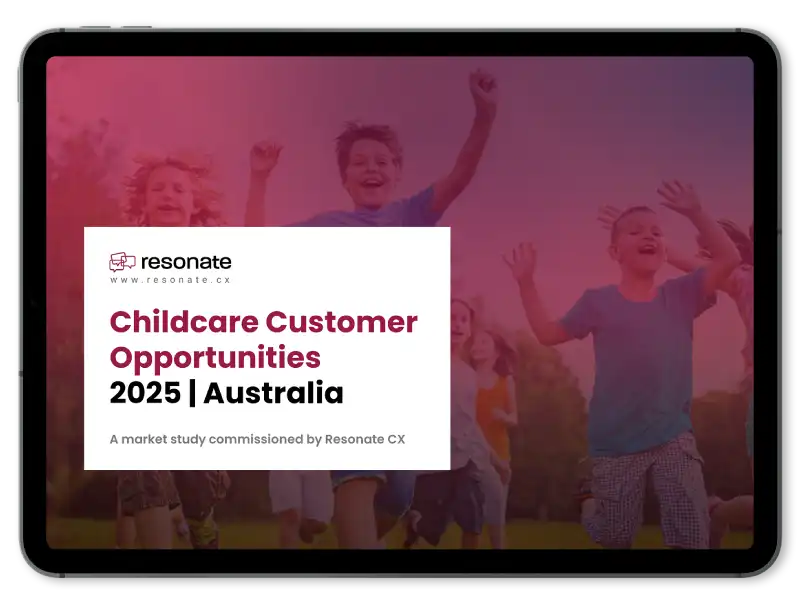TLDR:
- Empowerment is a core cultural value. For companies to successfully empower frontline employees, it must be part of the organization’s culture from the top down. This means that leaders and managers must trust their employees and give them the autonomy to make decisions and solve customer issues in real-time without needing to escalate every problem.
- Provide the right tools and knowledge. To be effective, frontline employees need more than just a mandate to be empowered. They require specific training on soft skills, as well as access to technology like AI and automation. These tools help them streamline their tasks and gain real-time insights into the customer journey, enabling them to provide more personalized and efficient service.
- Create a continuous feedback loop. Companies should establish a system where employees can receive and provide feedback related to customer interactions. This includes a feedback loop that connects employees directly to customer sentiments, providing them with recognition for their efforts and coaching to foster continuous learning and improvement.
- Connect employee experience to customer experience. The article highlights a strong link between a positive employee experience (EX) and a positive customer experience (CX). When employees feel valued, supported, and empowered, they are more engaged and motivated to provide excellent service, which in turn leads to higher customer satisfaction and loyalty.
- Better CX drives business growth. Empowering frontline employees creates a virtuous cycle that benefits the entire business. An improved customer experience leads to increased customer retention and a stronger brand reputation. The article cites a study by IDC, which found that a significant majority of organizations believe that high employee satisfaction and engagement are directly tied to a better customer experience.
Customers usually remember the people they interact with most. Whether it’s the first “hello” when they walk into a store or the last email before an issue is resolved, these frontline moments often define the customer experience (CX). That’s why frontline employees, those who speak directly with customers in person, online, or over the phone, are arguably the most critical link in any organisation.
Empowered frontline staff create impressions that influence loyalty, brand reputation, and long-term growth. When organisations support these employees with the tools, training, and respect they deserve, the result is not only better service but a culture where both staff and customers thrive. As the competitive environment across just about every industry grows more cutthroat, that human-centred strength will be what sets resilient businesses apart.
At Resonate CX, we believe empowering frontline employees is one of the surest ways to elevate customer experience. To make it happen, businesses need more than a training manual. They need a culture that values people, tools that make their jobs easier, and systems that connect employee success to customer outcomes.
Embedding Empowerment in Your Organisational Culture
No tool, policy, or incentive can replace the foundation of trust. If frontline staff don’t feel supported by the culture around them, even the best systems won’t inspire great customer interactions. Empowerment starts with how an organisation treats its people.
As a leader of your organisation, it’s up to you and your peers to set this tone. A culture that values customer experience has to be modelled from the top down. When senior leaders demonstrate empathy and responsiveness, frontline employees are more likely to mirror those behaviours with customers.
Trust also matters. Giving staff autonomy to make decisions, to resolve a complaint, offer a goodwill gesture, or fast-track a solution, shows that the business believes in their judgment. Autonomy removes the frustration of constant approvals and allows employees to solve problems in real time, which customers notice and appreciate.
Of course, none of this can happen without good communication. Open channels between management and staff ensure employees feel heard. When ideas flow both ways, employees are more engaged and motivated to deliver exceptional service.
Equipping Your Frontline with Tools to Do Their Best Work
Even the most motivated employee will struggle without the right support. That’s why it’s important to make sure frontline staff have the tools and knowledge they need to do their jobs well.
Training is a key part of this. Product knowledge might be essential, but it’s not enough on its own. Employees also need soft skills such as empathy, problem-solving, and active listening. Scenario-based training can be particularly effective, as it gives staff the chance to practise how they would handle challenging situations in a safe, controlled setting first.
Technology can help support your frontline staff, but only if it’s used wisely. The goal isn’t to replace frontline workers with systems but to give them better tools to serve customers. AI and automation, for instance, can provide quick access to customer history or streamline routine tasks, freeing up employees to focus on building human connections.
Lastly, your employees need access to real-time information. When staff can see a customer’s journey across different channels, they can resolve issues faster and with more confidence. A call centre agent who instantly knows the details of a customer’s recent purchase, for instance, can handle the query in minutes rather than transferring the call multiple times.
Utilising the Feedback Loop for Continuous Improvement
Empowerment can’t be a one-off project. To sustain it, organisations need a feedback loop that gives employees direction, acknowledges their efforts, and helps them improve.
Connecting staff to customer feedback is one way to close this loop. Seeing how their actions directly affect customer satisfaction helps employees better understand the value of their work. Real-time insights also make it easier to adjust quickly when something isn’t working.
Recognition is another crucial piece. Publicly celebrating wins, offering rewards, or even sharing a customer’s positive comment in a team meeting reinforces the behaviours you want them to keep practicing. Recognition doesn’t always have to be monetary; sometimes, a simple, genuine thank you is enough to motivate.
Coaching completes the cycle. Every customer interaction can be a chance to learn. Managers who use both successes and setbacks as coaching moments help staff develop skills and grow their confidence. Over time, this culture of learning ensures empowerment isn’t just granted but reinforced and renewed every day.
Connecting EX to CX for the Most Strategic Payoff
At the end of the day, the goal of empowerment is bigger than any single interaction. You want to create a virtuous cycle where employee experience (EX) drives customer experience (CX), and vice versa. There’s plenty of research to back up the benefits of this approach; one 2021 study by IDC, for instance, reported that 85% of surveyed organisations agreed that high rates of employee satisfaction and engagement translated to better customer experience, higher customer satisfaction overall, and ultimately greater revenue overall. To get even more granular about it, a similar study by Glassdoor asserts that, for every one-star boost to a company’s employee ratings, the organisation will likely see customer satisfaction rise by around 1.3 points.
Professionals who feel trusted and supported will naturally be more engaged in their work. Engaged employees bring more energy, creativity, and empathy to customer interactions. Those interactions, in turn, build customer loyalty and satisfaction.
The business impact is clear: higher customer retention, increased lifetime value, and a stronger brand reputation. At Resonate CX, we help organisations strengthen this connection through our Employee Experience solutions. We give businesses the tools to listen, act, and empower staff in ways that directly improve CX.
Conclusion
Frontline staff shape customer perceptions in the moments that matter most. When you invest in them the right way, they can turn everyday interactions into lasting loyalty. They’ll be well-equipped to serve your customers in memorable and impactful ways, whether they’re guiding people through your selection in-store, following up a concern through e-mail, or meeting them somewhere in between. Resonate CX helps businesses put these foundations in place, building a culture of trust, providing tools that simplify work, and turning customer and employee feedback into actionable insights. If you want to empower your people and deliver consistently better customer experiences, now is the time to start.













